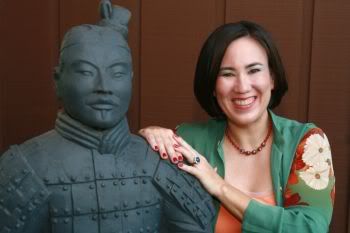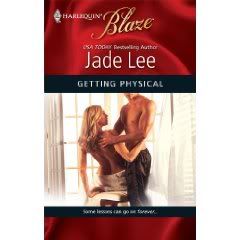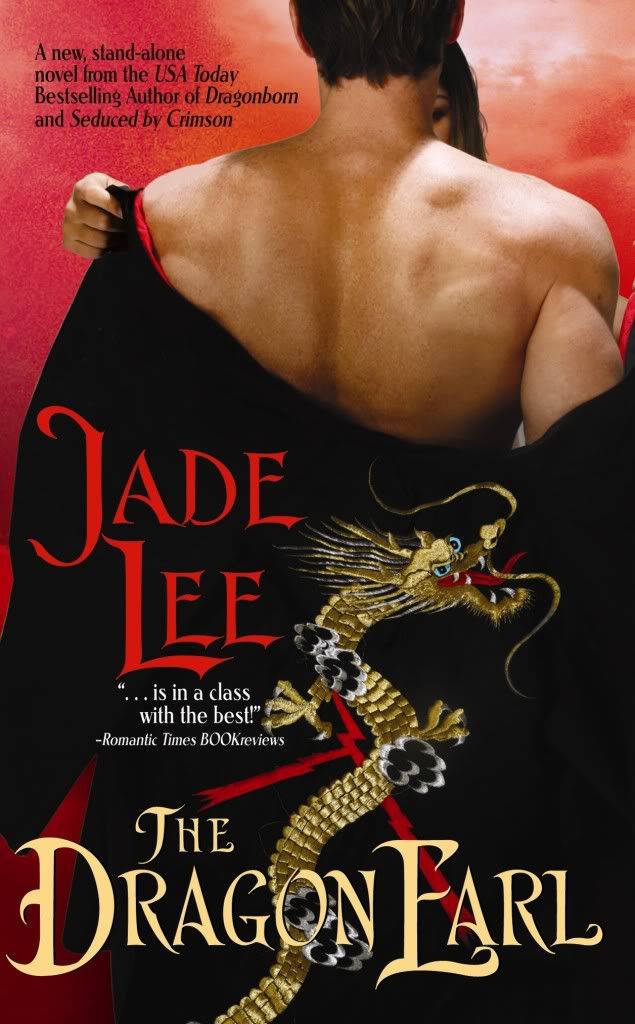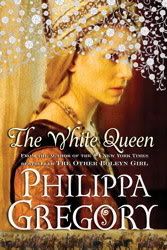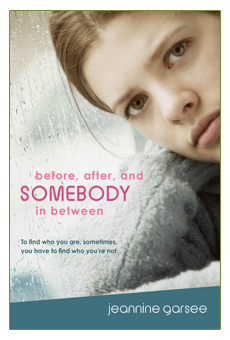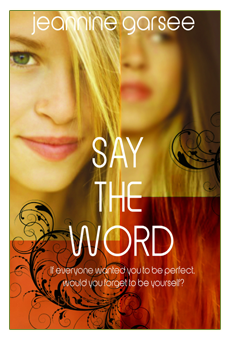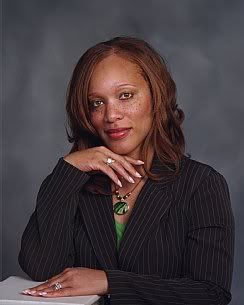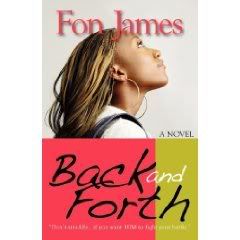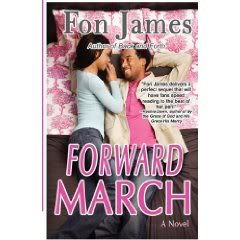Hi everyone! It is my pleasure to bring to you, author Susan Wiggs! She is an author who frequently visits Jack's Bar and is considered a friend by many there! For those of you not familiar with my style, my asides are in brackets [] and usually exist throughout the post.
The Neverending Story
by Susan Wiggs
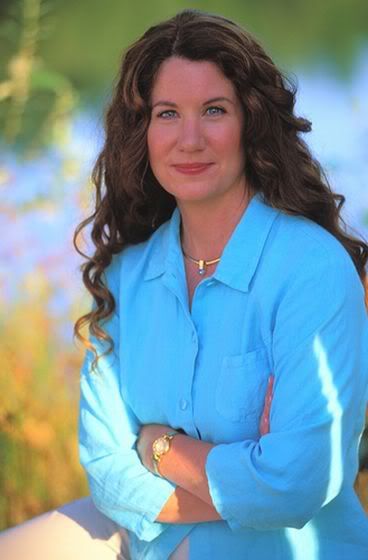
What’s up with all the sequels and connected books these days? Check out any recent bestseller list, and you’ll find recurring sleuths, spinoff romances, trilogies, epic cycles, thrillers with characters who just can’t seem to stay out of trouble. Genre writers and children’s authors practically invented the connected or series book, although the tradition can be found as far back as Homer and Chrétien de Troyes.
It’s less prevalent in literary-style books, often because the protagonist, beloved or not, dies. Or is already dead. The Lovely Bones is an amazing book but personally, I would rather have a root canal than read The Lovely Bones 2: The Lovelier Bones. A follow-up to The Kite Runner? Hit me in the head with a hammer, why dontcha? Maybe the best of these books–To Kill a Mockingbird, Bastard Out of Carolina, Snow Falling on Cedars–are so complete in and unto themselves they don’t need a sequel.
[I saw and read To Kill a Mockingbird - I can't see why there would be a sequel made when you consider what the story was really about. Even after reading it or watching it, it seems so emotionally satisfying that anything more would be "overkill." I guess I feel the same about Bastard Out of Carolina. This was an excellent movie that I find the need to watch whenever Lifetime feels the need to show it. The main theme of this story was about the girl. Again, the ending was emotionally satisfying and we want to think that anything that happened to the girl from that point on was better than what she had already endured. The last thing we would want to read about is if this girl had worse things happen to her because it would, well, break our hearts because we all wanted the best for her by the end of the story.]
Then there are the authors who are so popular, they continue to publish after the author is dead. The late J.R.R. Tolkein topped the charts recently with The Children of Hurin, which his son Christopher finished. Poor Ian Fleming is a hundred years old, and he’s still writing Bond books. He’s a ghost with some of the best ghostwriters in the business–John Gardner, Kingsley Amis and Sebastian Faulks. Robert Ludlum , who died in 2002, has been publishing a bestseller or two every year since departing this life. Twenty years after her death, V.C. Andrews is as prolific as ever. I wonder if the recently deceased George MacDonald Fraser will keep going with his bullying, hugely entertaining antihero, Flashman. In my dreams, my post-mortem books are written by authors far better than I.
[Why do publishers think we can't tell? Of course, this works for some of the newer generation who doesn't bother to research an author they like. It ruins the existence of the author himself because it makes many people wonder just how many people really write under the moniker of Ian Flemming and, did he really exist? When you think about that, then you tend to wonder if that's going on with other authors. Oh, as much as I love JAK's Arcane society, I hope they do not ever get a ghost writer for her. If someone carries on the tradition, fine, but don't try and tell me your the real thing!]
In genre and commercial books, that thread of connection is becoming the norm rather than the exception. Publishers tend to like series books, because it helps with marketing. They can create a consistent look to signal to readers that there’s a new addition to an old favorite. They can build anticipation and schedule the books at regular intervals, accelerating the building of numbers.
[Let's not forget the possibility of toys, games and expansion into graphic novels, which seems to be a growing trend, in an effort to reach a wider audience.]
Writing books with continuing threads is a natural fit for many writers, myself included. Just because you’ve written “The End” doesn’t necessarily mean a story is over. Characters take on a life of their own, and we–and our readers–find ourselves imagining where they are now. It also saves us from the post-partum depression we sometimes suffer once a book is over.
A lot of series start organically, when a writer’s story grows beyond the scope of one novel. A secondary character steps onto the page, and you suddenly realize he’s on a journey of his own. Maybe you build a world–a town like Mitford, or Cedar Cove, or some other made-up place that suggests story after story. There might be a workplace–Precinct 87, anyone?–filled with enough situations and characters for book after book. Stories multiply like the mythical hydra–you make a Herculean effort to finish one off, and two more appear in its place.
Readers are drawn to series books. My love affair with series books started when, at the age of nine, I rewrote the ending of The Yearling (that kid Jody Baxter was a wicked bad shot) and made up stories about Charlotte’s spider babies. I collected books about the Bobbsey Twins, the Little House books, even the Three Musketeers, although these became more lame as time went on. In contrast, Georgette Heyer actually outdid These Old Shades with its spinoff, The Devil’s Cub. I was recently at a reading by fantasy author Terry Brooks, and in the audience was a guy who had been reading his Shannara books for thirty-one years.
[I can list three off hand that I love to read and will read all books that come out: Patricia Cornwell's Kay Scarpetta Books - as much as I love the character, Cornwell has aged her and will, to my utter disappointment, have to have her die at some point waah!; R.A. Salvatore's Drizzt Do'Urden Saga - I'm behind, but that doesn't mean I won't catch up; J.D. Robb's In Death series - Eve and Roarke are really enjoyable and the audiobooks are wonderful performances!]
Readers tend to get proprietary about the books they love. As far as I know, Annie the Number-One Fan of Misery, is a figment of Stephen King’s dark imagination, but readers with that kind of passion do exist. I have no doubt that Laura London, aka Sharon and Tom Curtis, has been fending off shrill cries for Cat’s story for decades. Robin McKinley surely has Sunshine fans camped out on her doorstep. Elizabeth Lowell hinted at doing a sequel in her medieval series about the character Eric but this reader is still waiting.
Readers are a demanding lot. They want Daisy’s story. Or Seth’s. Or (fill in name of beloved secondary character here). They fell in love with something about a book, and they want to revisit the world of the story again and again. They’re looking for a familiar story tone or author voice. Small-town settings are a big draw. A small town, where everybody knows everybody else, where there’s history and old friendships and rivalries, is a good bet. People yearn for that kind of connection in this fast paced life.
[Yes, this should be the ultimate kudos to any author. If you can make us care so much about a set of characters in some real or imaginary town, that we want to keep reading beyond one book that we beg you for more, that is really the ultimate success and demonstrates the power of your talent.]
It’s tricky, though. They insist on the comfort of familiarity, yet they want something new and exciting and fresh. Disappoint them at your peril.
Finding a uniting theme is key to creating a successful franchise. A boarding school for wizards, anyone? A family of vampires? How about a mystery that unfolds over the course of many books? Or a highly specialized, dangerous career with Suzanne Brockmann’s Troubleshooters. A summer camp, a yarn shop, a quilting circle or a cooking school. A family like Mary Balogh’s Cynsters or Jo Beverley’s Mallorens. Diana Gabaldon’s Jamie and Claire. Sometimes the concept for a series is as simple as a character you adore–what’s Stephanie Plum up to next?
I once wrote a trilogy about the Great Chicago Fire of 1871, which saved me months of research. Instead of researching three separate eras or events for the books, the one big event yielded three stories. And yes, there is a book about Phoebe, who one day will turn my trilogy into a quadrilogy.

[I listened to the abridged version of
The Mistress. I really hope that the unabridged audio versions of your books exist on CD somewhere (If not, they should!) because I detest abridged versions because it inevitably feels choppy and confusing in parts. However, I didn't realize until just now that it was part of a trio, so now I am on a quest for the other two because I did find Kathleen O'Leery and Dylan Kennedy to be quite interesting!]
How do you know if you’ve stayed too long at the party? It’s a judgment call, like everything else in this business. The three musketeers fizzled (sorry, couldn’t resist). Anne of Green Gables tried readers’ patience about the fourth or fifth time she straightened out a wayward child. And does Gilbert still love her? (Duh.) Writers walk a tightrope, trying to strike a balance between keeping a series fresh and avoiding repetition and staleness, while not disappointing readers with a big twist or switch. When Elizabeth George killed off a beloved character in her long-running Lynley novels, she found herself explaining the situation on CNN. Dorothy Dunnett was a ruthless killer of characters. J.K. Rowling has declared that there will be no more Harry Potter.
[For me, I don't always want the story to stop at the supposed HEA, I want to know, do they really stay in a state of HEA, or does fate throw them even more twists and turns, as it does to many people in real life? So, a story doesn't have to end with a marriage or the birth of a child, because - as far as I'm concerned - this is where the real story begins.]
Like the characters in a long-running series, we move on. We ride off into the sunset to explore new horizons. See you around, pardner.
Susan Wiggs’s neverending Lakeshore Chronicles series is published by Mira Books. Lakeshore Christmas is definitely not the last. Artwork courtesy of her fellow writer Suzanne Selfors, www.suzanneselfors.com.
I want to thank Susan for joining us today! Be sure and leave a comment, because one lucky winner will win a set of her Tudor Rose Trilogy -
At the King's Command, The
Maiden's Hand, and
At the Queen's Summons! Of course each of these is a reprint of the following titles:
Circle in the Water,
Vows Made in Wine, and
Dancing on Air - but who cares, it's a free set of books! I know I wouldn't mind a set of these! The new cover art is fantastic!
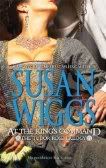
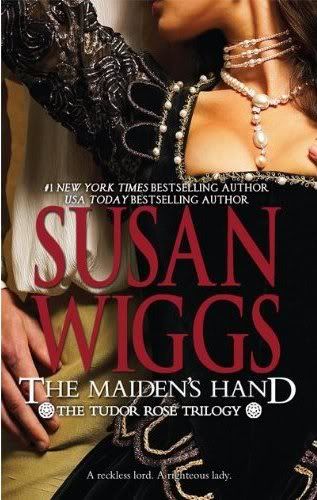
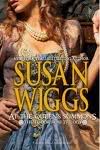
Tell us, what favorite series did Susan's post make you think of?
 When I first read the premise of According to Jane, I thought, Well, this could be interesting. A young girl inspired by the voice of Jane Austen, whose ghost has taken up residence in her head? Well, that was different. But I like Jane Austen and I've read and enjoyed several books inspired by her, so when I was given the opportunity to read an advance copy of this book, I took it. And I am so happy that I did. According to Jane is everything you could wish for in a book. It's funny, it's witty, even poignant at times, and it's one of those books that grabs you from the beginning and won't let go until you're finished. It's a book that you think about in the down time between readings and stays with you after you finish it. an absolute dream of a book.
When I first read the premise of According to Jane, I thought, Well, this could be interesting. A young girl inspired by the voice of Jane Austen, whose ghost has taken up residence in her head? Well, that was different. But I like Jane Austen and I've read and enjoyed several books inspired by her, so when I was given the opportunity to read an advance copy of this book, I took it. And I am so happy that I did. According to Jane is everything you could wish for in a book. It's funny, it's witty, even poignant at times, and it's one of those books that grabs you from the beginning and won't let go until you're finished. It's a book that you think about in the down time between readings and stays with you after you finish it. an absolute dream of a book.